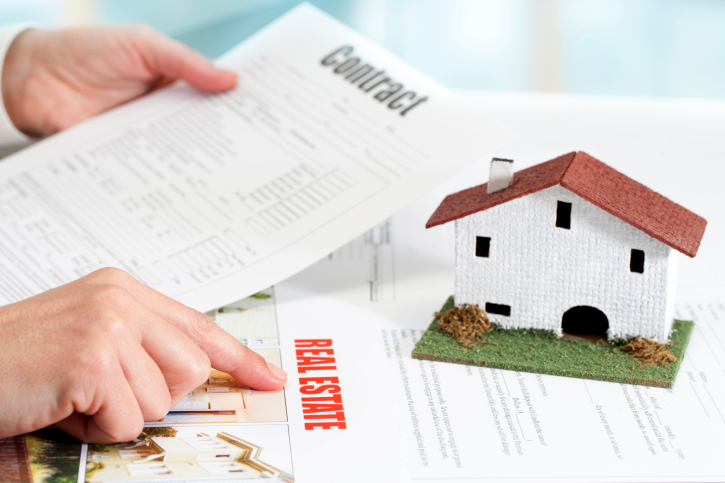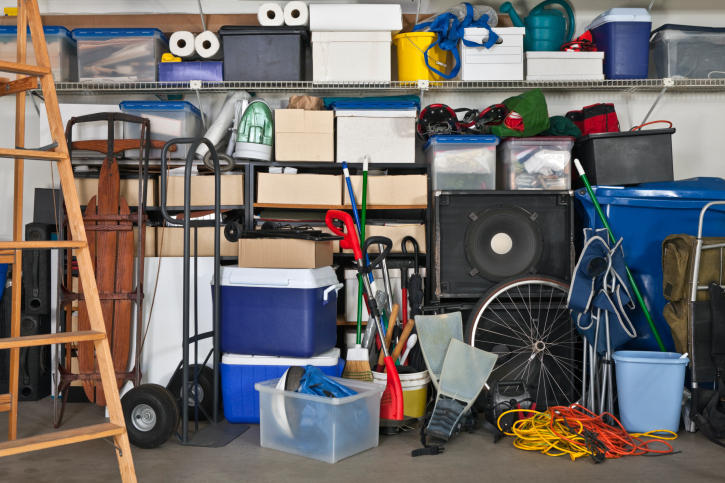 There are few things that can be more stressful than buying or selling a home. When you are buying and selling a home at the same time, your stress level may understandably skyrocket through the roof. There may be financial aspects of both transactions that may be cause you stress, and you may be dealing with logistical issues or simply feel stressed by the stacks of documents piling up for both transactions. While this will inevitably be a challenging time in your life, you can more easily navigate through the transactions with success by following a few tips.
There are few things that can be more stressful than buying or selling a home. When you are buying and selling a home at the same time, your stress level may understandably skyrocket through the roof. There may be financial aspects of both transactions that may be cause you stress, and you may be dealing with logistical issues or simply feel stressed by the stacks of documents piling up for both transactions. While this will inevitably be a challenging time in your life, you can more easily navigate through the transactions with success by following a few tips.
Consider the Timing of Both Transactions
One of the best things you can do when buying and selling a home at the same time is to plan ahead and consider the timing of both transactions. You may get lucky enough to get an offer on your home from a buyer who wants to close just a few days before you close on your new home. However, it is more likely that these two transactions may be finalized weeks or longer apart from each other. You may need to plan on finding an interim home or paying double mortgages for a period of time. You may consider which of these two options is more preferable to you based on your work situation, your family’s needs and your budget.
Prepare a Budget Ahead of Time and Update It Periodically
Financial stress can mount during this period of time. You will need to make a good faith deposit and pay for third party reports and mortgage application fees for your new home purchase. You may also need to pay money to make repairs and to stage your current home before you list it. It is common to rent a storage unit and to pay for boxes and moving supplies as well.
In addition, a buyer for your current home may request that you make repairs to your home before closing. It is important that you prepare a budget so that you can pay for all of these expenses as they arise, and you should consider leaving yourself ample funds for unexpected expenses. If you run into a cash crunch, consider completing the sale of your current home entirely before going under contract with your new home purchase.
Use the Same Real Estate Agent for Both Transactions
The knowledge and support of a real estate agent can be beneficial to you for both transactions, and you may consider using the services of the same agent for both. Dealing with one person who is familiar with your goals and needs can be truly beneficial to you throughout the entire process, and he or she may offer insight about the best steps to take to make the transition from one home to the other smoother for your family.
While buying and selling real estate can be stressful, you do not have to make the process more difficult than it needs to be. You can set up a time to meet with a real estate agent today to begin discussing your plans and to take the initial step.
 Relocating to a new area can be exciting, but it can also be expensive. There are many resources to help, but most cost money. However, if you take your time and plan carefully, you can reduce the expense so you don’t start your new life with new debt. Here are three tips to controlling your moving budget.
Relocating to a new area can be exciting, but it can also be expensive. There are many resources to help, but most cost money. However, if you take your time and plan carefully, you can reduce the expense so you don’t start your new life with new debt. Here are three tips to controlling your moving budget. It can take a time and effort to find the perfect home to purchase. After you have found that home, you need to convince the seller that your offer is the one they want to choose. There may be multiple offers made at the same time, and you may be in a situation where you are competing for the home.
It can take a time and effort to find the perfect home to purchase. After you have found that home, you need to convince the seller that your offer is the one they want to choose. There may be multiple offers made at the same time, and you may be in a situation where you are competing for the home. There’s a whole lot to learn when buying one’s first home, an investment that can bring joy, but sometimes, grief. A competent real estate agent can assist in locating those homes that meet the home buyer’s needs and can advise on factors such as market value of the home and neighborhood services. The agent will help the buyer through the negotiation and purchase process. But the buyer should take responsibility to make sure that the steps below are taken.
There’s a whole lot to learn when buying one’s first home, an investment that can bring joy, but sometimes, grief. A competent real estate agent can assist in locating those homes that meet the home buyer’s needs and can advise on factors such as market value of the home and neighborhood services. The agent will help the buyer through the negotiation and purchase process. But the buyer should take responsibility to make sure that the steps below are taken. Your home is your castle, your own little piece of the American dream. But lately, your little corner of the world has been feeling cramped and you find yourself eyeing those larger homes. Is it time to pull up stakes and move on from your starter home?
Your home is your castle, your own little piece of the American dream. But lately, your little corner of the world has been feeling cramped and you find yourself eyeing those larger homes. Is it time to pull up stakes and move on from your starter home? Many buyers anticipate the day they drive to their new home. Then it happens: the movers pull up. It’s time to move everything in. This can be a daunting task, but following a few steps will break down the work and careful planning will maximize space in the years ahead.
Many buyers anticipate the day they drive to their new home. Then it happens: the movers pull up. It’s time to move everything in. This can be a daunting task, but following a few steps will break down the work and careful planning will maximize space in the years ahead. Finding the perfect property is an exciting feeling, but its relative location can leave a lot of room for worry. Buying a home in the city is a venture that comes with an entire assortment of advantages and disadvantages. While the location might be close in proximity to businesses, services, and other people, it’s easy to worry about the other aspects of city living. What are the great and not-so-great facets of living on a busy street?
Finding the perfect property is an exciting feeling, but its relative location can leave a lot of room for worry. Buying a home in the city is a venture that comes with an entire assortment of advantages and disadvantages. While the location might be close in proximity to businesses, services, and other people, it’s easy to worry about the other aspects of city living. What are the great and not-so-great facets of living on a busy street? Every owner of condominium property automatically becomes a member of a homeowners association, otherwise referred to a “HOA” throughout the United States or a “Strata” in Canada. With that membership come certain rights and responsibilities. The primary right that the owner has is to vote at HOA meetings and elect board members. Responsibilities include payment of condo fees and assessments, compliance with association by-laws and rules, and maintaining a condo unit in conformity with those by-laws and rules.
Every owner of condominium property automatically becomes a member of a homeowners association, otherwise referred to a “HOA” throughout the United States or a “Strata” in Canada. With that membership come certain rights and responsibilities. The primary right that the owner has is to vote at HOA meetings and elect board members. Responsibilities include payment of condo fees and assessments, compliance with association by-laws and rules, and maintaining a condo unit in conformity with those by-laws and rules. Size matters when you are buying a new home. Whether you plan to expand your family, need more room for your stuff, or are concerned with resale value, you want to get the most space for your money. Also, if you want to add a feel of luxury to your home, one of the best ways to do it is to create open spaces rather than cramming all your furniture in rooms so tiny you can barely walk around without knocking something over.
Size matters when you are buying a new home. Whether you plan to expand your family, need more room for your stuff, or are concerned with resale value, you want to get the most space for your money. Also, if you want to add a feel of luxury to your home, one of the best ways to do it is to create open spaces rather than cramming all your furniture in rooms so tiny you can barely walk around without knocking something over. Are you about to buy a house or condo for the first time? Congratulations! Owning your own piece of real estate is a liberating experience and one that will provide you with the foundation to build your personal wealth and equity. Once you own your own home you’ll be responsible for a variety of new costs, including property taxes which are assessed by your local government to pay for municipal services. In this blog post we’ll share how property taxes work and what you can expect to pay when you buy your new home.
Are you about to buy a house or condo for the first time? Congratulations! Owning your own piece of real estate is a liberating experience and one that will provide you with the foundation to build your personal wealth and equity. Once you own your own home you’ll be responsible for a variety of new costs, including property taxes which are assessed by your local government to pay for municipal services. In this blog post we’ll share how property taxes work and what you can expect to pay when you buy your new home.